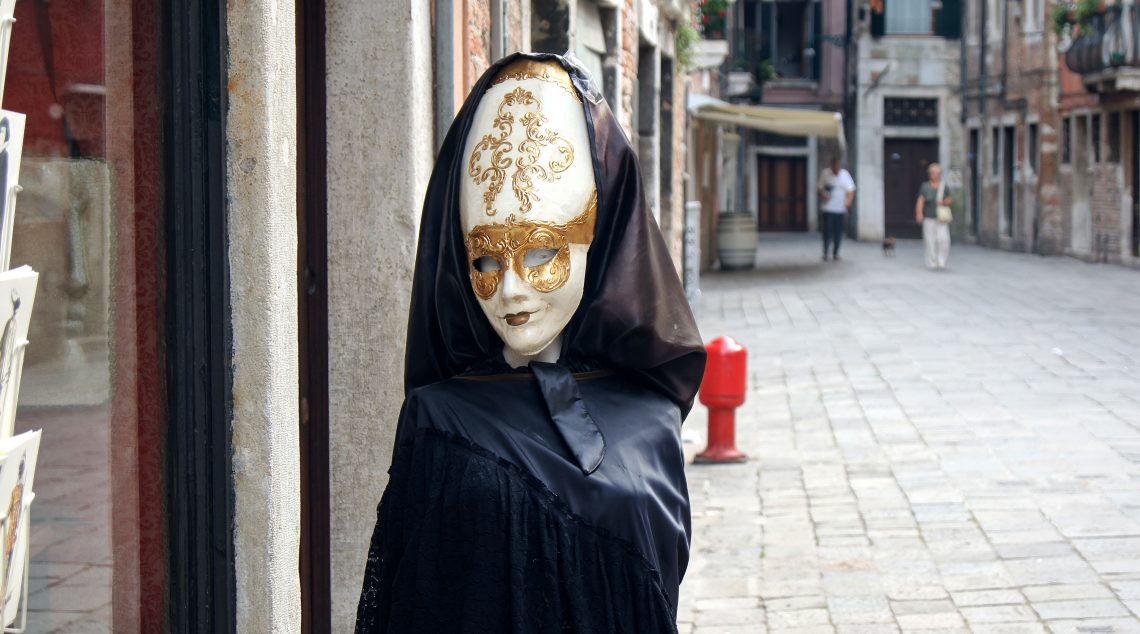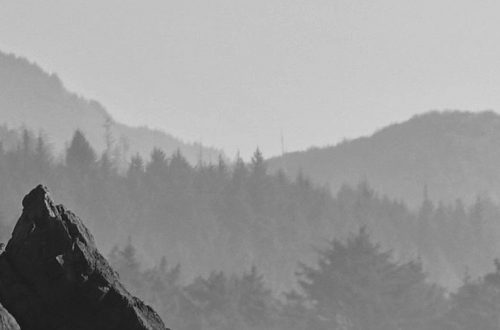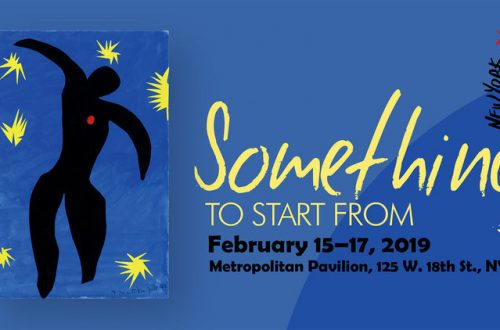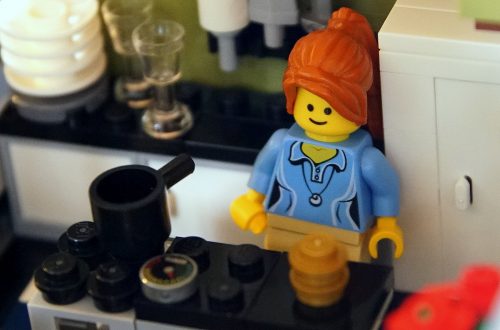by Abbey von Gohren
Compassion and gratitude come down from God, and when they are exchanged in a glance, God is present at the point where the eyes of those who give and those who receive meet.
Simone Weil
The evening air had turned tepid and pleasant, as it does after a scorcher of a day has finally relinquished its hold. Happily, there was still a good hour or two of daylight left, and I decided to take my son for a walk up to the neighborhood park. I was feeling particularly liberated in spirit. The long-awaited results of a COVID test (it took ten days) had just arrived as negative, so my stricter version of quarantine was at an end. The modest circle of family we’d opened up for summer community could be given the all-clear, and we could go back to normal life, like chatting six feet apart outside, seeing people we loved in person, and grabbing coffee or spring rolls from the corner place in masks. My heart was lifted up, exultant, even! Only a few days before, I had experienced the most acute loneliness since March when all of this began, that strange moment when all of our lives were humming along per usual and then utterly disrupted, and with it, our desires.
Sometime in May, after we had all become accustomed to a host of new limitations and ways of doing things, philosopher James K.A. Smith gave an online lecture entitled “Disruption as a Gift: A Chance to Recalibrate Our Loves.” His observations were based on the following three premises: 1) You are what you love, 2) learning to love takes practice, and 3) the things you do do something to you. He calls those things we practice “liturgies” or “rituals of desire.” In many cases, we are completely unaware of these habits and the loves which are at their origin. Checking your phone X times a day, for example. You pick it up, hit the password button, and then make the rounds through three or four apps (email, Facebook, twitter, Instagram, etc.) until something grabs your attention. Maybe your head snaps up twenty minutes later and you can’t remember why you picked it up to begin with. His point is that these are not neutral acts; they spring from our hearts’ desires, often unconsciously chosen rather than intellectually assented to, and that they are loaded, bodily rituals which orient our hearts over time. In the case of my iPhone, my habit of scrolling through it frequently is a ritual which powerfully trains me to look for recognition and long for adulation (in Facebook terms, “likes”). We are inescapably beings who must worship and love. Our affections will be recruited by something.
What kind of effect, then, has the pandemic had on these practices and affections? Smith argued that evening (over “Zoom,” one such ritual that nearly all of us learned overnight) that though the effects of COVID-19 are tragic and the suffering from it widespread and diverse, the situation is also forcing most of us to press “pause” on many of our usual rituals and to examine them. Additionally, we are being compelled to new social practices, like Zoom, “social distancing,” wearing masks, and allowing seniors to use the grocery store for an hour before the rest of the general public. In short, our loves have been disrupted because our existing liturgies have been upended and we are adopting new ones.
The local playground is one such ritual which was shut down. Sometime in June, the official signs on the playground equipment and basketball courts two blocks away from our house evolved from the incredibly depressing “NO PLAY ALLOWED” to “NOT SANITIZED – PLAY AT YOUR OWN RISK.” Bit by bit, we allowed our 4-year-old to rediscover the playground and – other children! It was like a tonic – he came alive. On the night of the celebratory outing after the negative COVID test, I watched him run barefoot after a large group of kids until he won their admiration while a nearby father waved approvingly. I felt like I’d won the lottery. The evening was beatific – towering cumulus clouds in a pinkish sky as the kids cavorted, ran, invented, jumped, and kicked the soccer ball. The older girls in joyous colors and bejeweled hijabs ran around with their brothers at first, but soon shyly sidled up to me, confiding in me about their shared birthdays with cousins and their favorite subjects in school. My son ran over at one point, flushed cheeks, and said:
“Mama, I feel as happy as a banana split with a hundred scoops of ice cream when I’m with those guys!”
He couldn’t be happier than I at this point, seeing him like this. Meanwhile, I had finally met one of the three babas who sat on a mat joking around (brothers as it turned out) and these marvelous children were their collective family. The man with the beaming smile introduced himself as Daya and I asked what that meant. “In Somali it means moon. Alqamar in Arabic.” I said: “Your children are so kind to my son. Thank you.” “Yes, sister! Thank you sister!” was his gracious reply, and I had to turn away, because the tears sprung to my eyes. My son had been given the gift of Somali cousins, and I was being treated nobly and kindly, as a sister. I heard my son’s name hallooed across the park for the next hour as he was beckoned repeatedly to rejoin the human family, as was I.
It was a timely encounter, as I have been beset by disappointment and occasional despair at painful rips in the social fabric as the several existential crises of 2020 have leaned with all their weight. Certainly, there have been moments when people have acted unselfishly, but in the long run, our foibles seem to be more at the fore, and any amount of logic or common sense does not seem to be holding up to the strain. I probably don’t have to convince anyone on the face of this earth at this point that we’re in a tough place in terms of unity. But this is where James Smith’s notion of our primary mode as desiring or loving beings is so on point. We cannot seem to intellectually reason our way out of the depression of a long, lonely spring. Or the breath-taking vitriol we see splashed across the political landscape. Or the heart-breaking suffering of our grieving, beloved community. We are not “brains on a stick” but we instinctively seek out rituals that shape our loves – for better or for worse. At our worst, we gang up on each other and cut each other down. At our best, we give our lives for one another. It all depends on what liturgies we’ve been practicing.
Given that, it is worthwhile to consider doing a “liturgical audit,” both individually and collectively. Why have I suddenly prioritized a daily walk during the pandemic? Is it to go towards something I want, or to escape something I don’t want? Or how could social distancing, a brand-new practice to all of us, be paradoxically an act of love? What does wearing a mask really mean? – surely it doesn’t fundamentally have anything to do with how you are going to vote in November.
The kind of disunity we are facing is neither unprecedented nor the final time we’ll see it. But when my neighbor called me “sister” my eyes opened to an entirely different reality, separate from the shouting headlines and the desperate sameness of my house day in and day out. I’m not envisioning “good vibes,” diffuse “thoughts and prayers,” or some kind of kumbaya moment. A mere positive feeling which passes quickly and withers and is remembered no more once the next hardship hits is not equal to the stark difficulties and mind-numbing monotony of the past months. But if we can trace down to the root of our most fundamental desires in an honest way, both corporately and in the stark quiet of our own hearts, we can work toward practices that truly do love our neighbor.
You may be wearing a mask, but I can still see your eyes. And in that moment of exchange, God is there.

Abbey von Gohren is from Minneapolis, MN. She teaches French and leads high-school seminars on philosophy, history
Header Image: “Venice, 2007” by Jon Balsbaugh (used by permission)






7 Comments
Diane Dick
Just lovely, dear Abbey! Thank you for bringing this important message to your readers!
Mary Radtke
A well-articulated reflection, Abbey, that touches my heart!
Toni Carlson
Beautiful and insightful Abbey ❤
Thank you
Debra Salo
Thank you for your inspirational and articulate words and views on our current world.
Krista Slagle
Merci, chère Abbey. Quel plaisir de te lire; j’apprécie beaucoup tes mots.
Bien à toi, Krista
Henry Lewis
Beautiful and lovely; and teaching us to gaze into the very heart of God. I love your words. It seems that you teach us to unfold the wonder of each day anew. Each moment and encounter a special window into the soul of another. Each encounter a look at our own heart. These are such good words for hungry souls.
Nancy Grams
Beautifully composed and simply refreshing to my soul. Your words have sent me a cool summer breeze through cyberspace.
Thank you!